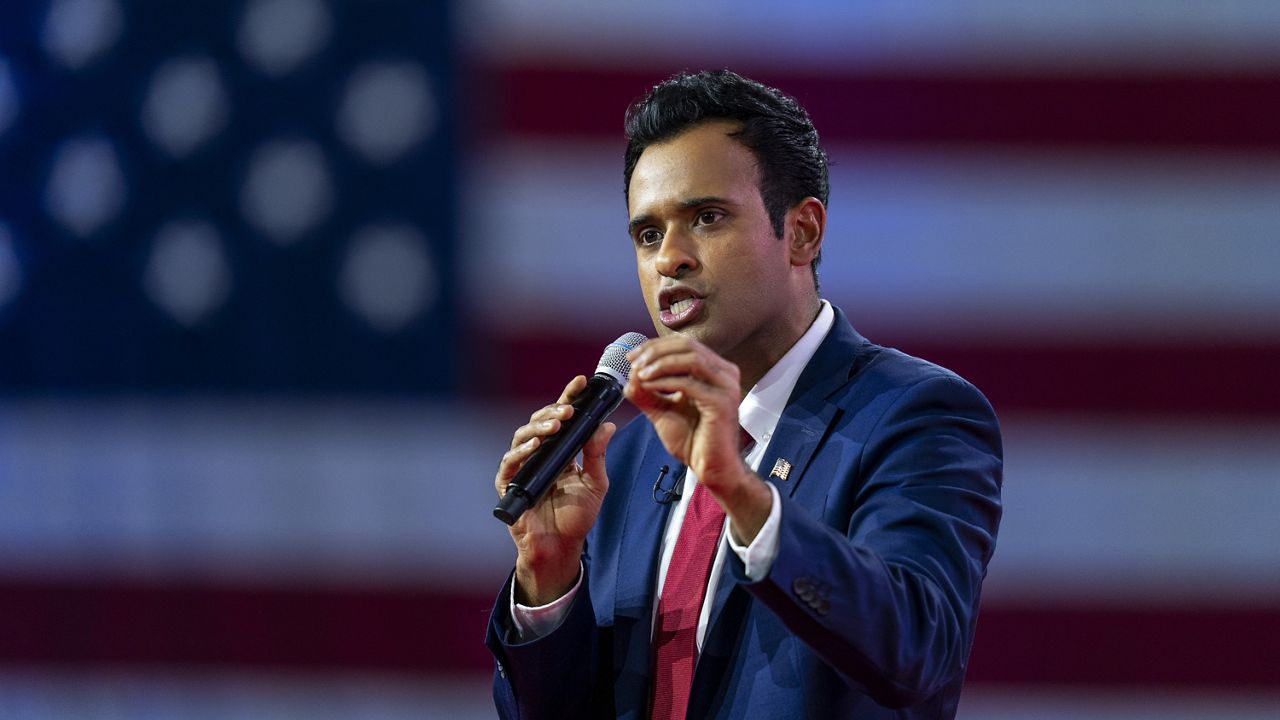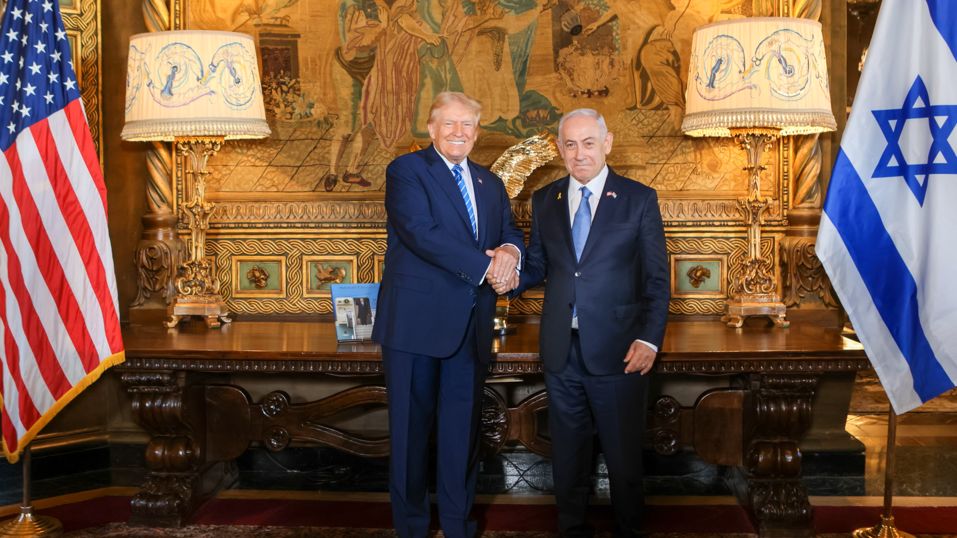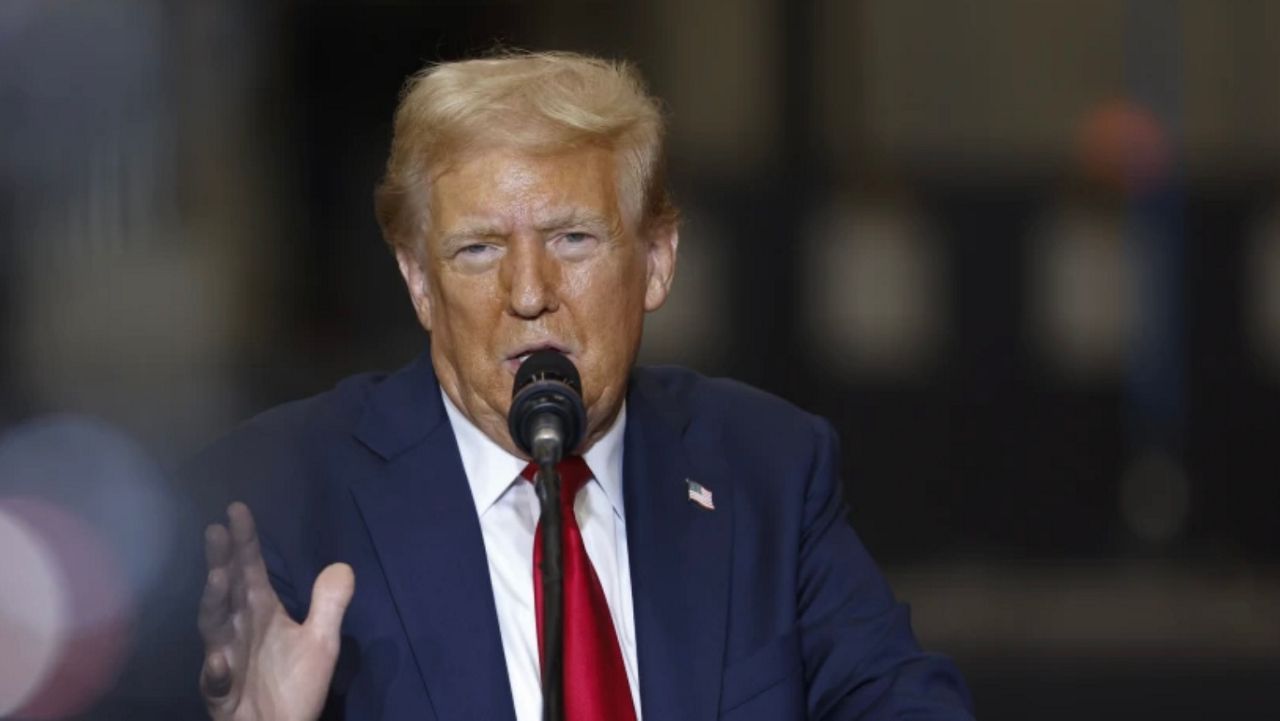Fresh off a debut debate performance that scored well in polls, Republican presidential candidate Vivek Ramaswamy on Monday unveiled what his foreign policy agenda would look like if elected.
What You Need To Know
- Fresh off a debut debate performance that scored well in polls, Republican presidential candidate Vivek Ramaswamy on Monday unveiled what his foreign policy agenda would look like if elected
- In an op-ed in The American Conservative, Ramaswamy wrote that if he were president, the United States government’s job would exclusively be “to represent the interests of Americans” and pursue “peace, commerce, and friendship with all nations.”
- The 38-year-old biotech entrepreneur and political newcomer said he would negotiate an end to the conflict between Russia and Ukraine — which he called a “no-win war” — by traveling to Moscow, accepting Russian control of occupied territories in Ukraine and blocking Ukraine from joining NATO
- Restraining China is at the heart of much of Ramaswamy’s foreign policy vision
In an op-ed in The American Conservative, Ramaswamy wrote that if he were president, the United States government’s job would exclusively be “to represent the interests of Americans” and pursue “peace, commerce, and friendship with all nations.”
The 38-year-old biotech entrepreneur and political newcomer said he would negotiate an end to the conflict between Russia and Ukraine — which he called a “no-win war” — by traveling to Moscow, accepting Russian control of occupied territories in Ukraine and blocking Ukraine from joining NATO. In exchange, he said he would demand that Russia end its military alliance with China.
Ramaswamy wrote that he would also lift sanctions on Russia and bring it back into the world market, elevating the nation so that it could be “a strategic check on China’s designs in East Asia.”
Restraining China is at the heart of much of Ramaswamy’s foreign policy vision.
The GOP candidate said he would declare the U.S.’s economic independence from China and demand fairness in trading. Ramaswamy also vowed to end industrial espionage and proprietary theft by the Chinese, and he said he would incentivize American companies to move supply chains out of China and into allied markets.
He wrote that he hopes to deter China from someday invading Taiwan by working to help India, which has long maintained a nonalignment posture, use its technological and manufacturing might to better arm itself and regional allies; by trying to convince Japan, the Philippines and Australia to expand their defense budgets; and by encouraging France and the United Kingdom to reposition their naval forces in the region.
Meanwhile, Ramaswamy said he would seek to clarify the United States’ policy toward Taiwan.
Under the “One China” policy, the United States recognizes the People’s Republic of China as the sole legitimate government of China but has never accepted the Chinese Communist Party’s claim of sovereignty over Taiwan.
Though the sides lack formal diplomatic ties, the U.S. is Taiwan’s chief provider of outside defense assistance and political support.
Ramaswamy wrote, “We have operated in strategic ambiguity with regard to Taiwan for far too long.”
The White House hopeful said that if Taiwan wants the United States’ continued defense support, it must raise its own defense spending and military readiness to “acceptable levels.”
Ramaswamy also said he would oppose any further expansion of NATO. “European manpower should be the primary defense of Europe’s frontiers, with America as a balancer of last resort,” he wrote.
He complained that the U.S.’s financial contribution to the alliance is disproportionately high compared to other nations.
“While European and American interests remain aligned, our spending priorities are not,” he wrote. “No longer will America subsidize European weakness.”
In the Western Hemisphere, Ramaswamy said he would bolster the American Navy to deter adversaries from encroaching on the U.S., citing activity such as the suspected Chinese spy balloon that traveled over the country earlier this year, a Chinese spy base in Cuba and drug cartels in Mexico that he said are “used as foot soldiers by Chinese criminal enterprises … to push poisonous fentanyl into our country.”
He also demanded that other nations in the region “invest in your own security and prosperity so that your people will have no desire to migrate.”
And he called for a “minimal footprint” in the Middle East to preventing disrupting what he called “an uneasy equilibrium” there.
In last week’s first Republican primary debate, Ramaswamy’s foreign policy views came under attack by former Ambassador to the United Nations Nikki Haley. She accused him of wanting to side with Russian President Vladimir Putin — whom she called a “murderer” — over Ukraine. She also criticized Ramaswamy for saying he wants to end U.S. aid to Israel as well as his views on China and Taiwan.
“Under your watch, you will America make less safe,” Haley said. “You have no foreign policy experience, and it shows.”
The Democratic National Committee said in a statement released during the debate that it believes Ramaswamy “made clear that he is out of his depth on foreign policy issues — he is siding with Vladimir Putin and against our allies, and he has repeatedly discussed a plan to reward Putin for his bloody war in Ukraine.”
Twenty-six percent of potential voters polled by the Washington Post, Ipsos and FiveThirtyEight after the debate said they thought Ramaswamy performed the best at the event, trailing only Florida Gov. Ron DeSantis’ 29%.








